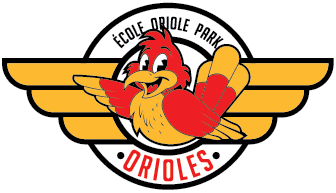Positive Behavioral Interventions and Supports
What is Positive Behavioural Interventions and Supports (PBIS)?
In general, the goal of PBIS is to establish learning environments that support the positive behavior of students through pro-active instruction, routines, incentives, classroom management and intervention policies. PBS involves the entire school population in promoting and rewarding positive behaviors. This continuum of positive behavior support for all students is implemented in areas including the classroom and non-classroom settings such as hallways, buses, and restrooms. Through data analysis, planning takes place to help prevent negative or risky behaviors, in order to create a safe, supportive learning environment. Attention is focused on creating and sustaining school-wide, classroom, and individual systems of support that improve lifestyle results (personal, health, social, family, work, recreation) for all children by making targeted behaviors less effective, efficient, and relevant, and desired behavior more functional.
Behavior Expectations
At École Oriole Park School we care about our students’ social and emotional development as well as their academic successes. Our staff is dedicated to helping students express themselves in ways that reflect honesty, dignity, safety, concern and respect for others. Our main school expectation is that the students will:
- Respect themselves.
- Respect others.
- Respect learning.
- Respect property.
Why is it so important to focus on teaching positive social behaviors?
Research has shown that the implementation of punishment, especially when it is used inconsistently and in the absence of other positive strategies, is ineffective. Introducing, modeling, and reinforcing positive social behavior is an important step of a student's educational experience. Teaching behavioral expectations and rewarding students for following them is a much more positive approach than waiting for misbehavior to occur before responding. The purpose of school-wide PBIS is to establish a climate in which appropriate behavior is the norm.
- Outcomes: academic and behavior targets that are endorsed and emphasized by students, families, and educators. (What is important to each particular learning community?)
- Practices: interventions and strategies that are evidence based. (How will you reach the goals?)
- Data: information that is used to identify status, need for change, and effects of interventions. (What data will you use to support your success or barriers?)
- Systems: supports that are needed to enable the accurate and durable implementation of the practices of PBIS. (What durable systems can be implemented that will sustain this over the long haul?)
Positive behavior expectations are taught and reinforced through:
- Proactive Instruction - Behavior is learned. We continually teach and reinforce behavioral expectations, as well as effective strategies students can use to achieve positive and safe behaviors . Children learn how to meet these behavior expectations in all settings encountered every school day (e.g., classroom, library, gymnasium, hallway, washroom, recesses, playground). These expectations are in English and French matrices students helped develop, and are posted in the school. Expectations are taught using a range of strategies that include modeling, practice and role playing. DVDs, guest speakers, social stories are also incorporated into lessons to reinforce desired behavior.
- Noon Hour Activities - Noon hour activities are offered that allow students the opportunity to be involved in structured play and learning situations where positive behavior is expected and promoted.
- Peer Support - Trained students in Grade 4 and 5 assist noon child care staff in setting up games, and helping students play. On occasion they also help some students make good social decisions. (SUSPENDED due to COVID-19 restrictions / cohorting restrictions)
- Recognition of Positive Behaviors - Students’ use of positive behavior is regularly recognized and promoted through the classroom and school-wide recognition; Values for Learning & Life certificates are promoted on OPN, in the classroom, in the newsletter, and sent home for celebration.
- Student Leadership At Oriole Park we believe that all older students should have opportunities for leadership that allow them to feel a sense of contribution to the life of the school. These genuine service learning activities also develop in children a sense of the benefit of volunteering. Some leadership opportunities for children include: (NOTE: Many of these leadership activities have been suspended due to COVID-19 / cohorting restrictions)
- Student Council - A group of about 20 students in grades 4 and 5 meet monthly to plan special school wide activities like dress up days, scavenger hunts, and guessing games.
- Peer Tutoring - A group of about 15 grades 4 and 5 students attend several training sessions on how to help students with reading. Teachers refer younger students who could benefit from additional reading practice and they are partnered with a tutor. The partners meet at recess time in the library.
- Morning Announcers - Grade 5 students, one each from the English and French program, announce birthdays and daily events each morning.
- Assembly MCs - Students act as MC’s for the Mini and Whole School Assemblies.
- Student Secretaries - Students in grade 5 are trained on how to answer the school phone and provide this service at lunch time.
- School Patrols - Students from grades 4 and 5 are trained to help students cross the street safely after school.
- Assembly Set-Up - These energetic children help set up the sound system and chairs for all assemblies.
- Pathways Play Buddies - A group of kind and dedicated children each lunch on a rotating basis with our special education students.
Reference
